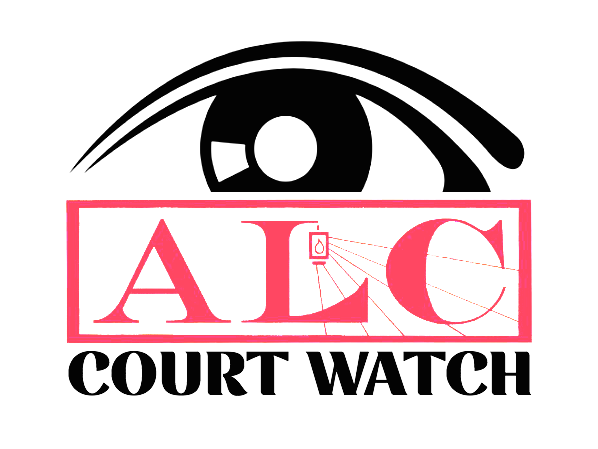by Sofia Huang
Renewal halfway house has become a de facto private prison in the wake of COVID-19
Renewal, Inc., a private company contracted by the Department of Corrections (DOC), has been keeping individuals in lockdown in cramped quarters that do not conform to social distancing standards, stripping them of basic rights, and denying them medical attention. Individuals in the halfway house are essentially being treated as prisoners despite being reentrants reintegrating into society.
According to the CDC, America’s jails and prisons have become hotspots for coronavirus outbreaks[1]. However, this issue is not only affecting those incarcerated in county, state, and federal facilities. Individuals released from correctional facilities to halfway houses are also at increased risk. Halfway houses, community-based organizations where individuals can normally expect to be able to enter and leave during the day in order to work jobs to prepare for reintegration into society, have become increasingly dangerous environments for reentrants in the wake of COVID-19.
This is true in our own backyard. Renewal Inc., a private, non-profit “community corrections organization” that houses 627 individuals in two facilities in Pittsburgh[2], has been subjecting individuals to overcrowded conditions and stripping them of their rights, to the point where they are suffering worse conditions than many incarcerated in prison. According to several individuals currently housed at Renewal, the facility has been on lockdown for about 50 days, with no news of when lockdown will end. With no access to the outside world, stuck in windowless conditions and bunked up 12 people per room with no space for social distancing, some feel like they are losing their minds. Individuals report developing rashes, dry skin, and red splotches due to a lack of sun and fresh air. Furthermore, the fact that people are not being let out for work means many are worried that they will be homeless and jobless upon reentry.
In light of the fact that Renewal is a private company, it makes sense that the abuses of power outrival those in public prisons and jails. As Federal government reports have shown[3], private companies contracted by the government lack oversight and accountability and, as a result, incur more safety and security incidents such as increased lockdowns, confiscations, inmate discipline, and monitoring and surveillance. These reports of abuse are echoed by Renewal’s current residents in lockdown: being trapped inside has led to a lack of proper medical attention and care, as well as increased surveillance that violates basic rights of the individuals inside.
A major concern, according to several people on the inside, is that many folks needing medical attention are unable to get the care they need. Individuals are allowed to see doctors only on an arbitrary, case-by-case basis. According to those inside, the facility staff are not allowing some who need emergency attention to seek care. If individuals leave for unofficially sanctioned appointments, they are threatened with a 14-day quarantine upon reentry. This stands in contrast to the constant stream of employees and new intakes moving into the building who could be exposing those already inside to heightened risk. Therefore, as one individual inside mentioned, the lockdown is not for their own safety, but instead prioritizes the health of staff. Those residing in Renewal are treated as second class citizens, stripped of health protections and deprived of basic rights to care.
Renewal is also flouting oversight and accountability in stripping individuals of basic rights.
Some report Renewal’s overuse of strip searches, which one reentrant, Mike Henry, reports as “out of control” and “humiliating,” despite the fact that “we’re not inmates in jail.”
Furthermore, individuals inside are required to open all mail in front of facility staff despite the fact that unlike public prisons, as a non-governmental, community corrections organization Renewal does not have the right to monitor individuals’ correspondences [4]. If individuals do not comply, they are threatened with having all mail and packages delivered back to the sender. These threats are especially cruel because the facility is not supplying adequate hygiene products. Therefore, the only way individuals currently on lockdown can get basic hygiene products is if their loved ones send items in the mail.
As a private company, Renewal is responsible for setting its own policies and practices in the wake of COVID-19 [5]. The DOC is not responsible for enforcing lockdown at privately contracted sites. As such, we need to hold Renewal accountable for its abuse of power and demand justice for those being held in inhumane lockdown conditions in their facilities. In stark contrast their organization’s purported goals of safety, empowerment, and rehabilitation[6], we need to call the situation what it is:
Renewal has become a de facto private prison.
About the Author: Sofia Huang is a rising second year doctoral candidate in Clinical Psychology at Duquesne University. She has conducted research related to mental and behavioral health in the juvenile justice system in New York State and is currently researching, writing, and practicing at the intersection of radical mental health, homelessness services, and housing, racial, and economic justice.
Notes
[1] https://www.cdc.gov/mmwr/volumes/69/wr/mm6919e1.htm?s_cid=mm6919e1_w
[2] https://renewalinc.com/wp-content/uploads/2019/12/Dec-13-2018-19-Renewal-Inc-Annual-Report.pdf
[3] https://oig.justice.gov/reports/2016/e1606.pdf
[4] https://www.aclu.org/know-your-rights/prisoners-rights/
[5] https://renewalinc.com/about/overview/
[6] The local director of Pittsburgh Community Corrections confirmed that they don’t have oversight over Renewal. However, efforts to contact the regional director of the bureau of community corrections in PA (Region 3 which includes Allegheny) related to the relationship between DOC oversight and Renewal, failed.
